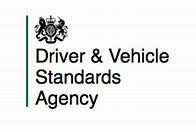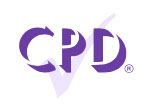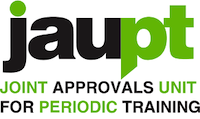Being a student coming out of college can be daunting enough, but when it comes to trying to get a job can be even harder. As most of the time students generally don’t have any real-world job interview experience, of course, there are plenty of students who have been interviewed for typical summer jobs, but in terms of interviewing for a significant career profession, many college students/graduates generally don’t have experience on how to portray themselves in an interview.
But do not worry, we have collated some simple interview tips that will help you get ready for the big interview day.
- Prepare!
This does sound patronising but it’s obvious that you’d have to prepare. Interviewers are going to expect that you’re familiar with their company and for that, it will require some homework. Knowing and understanding the position of which you are applying for, but also try and be aware of the company’s competition & potentially have a social grasp of the industry. Try tapping into college’s/universities alumni network or at least your parent’s circle of friends to see what sort of information you can gather.
On top of all of that, you could also read articles applicable in the newspaper, trade journals or business magazines that are related to the job that you’re going after. This will help you be potentially ahead of most the other people interviewing for the same position.
- Expect and prepare for the standard ‘tell me about yourself’ question.
“What do you believe is your greatest strength?” “What’s your greatest weakness?” “Tell me about a time when you made a mistake & how you dealt with it?” “What has drawn you to apply to our company?” – These are all examples of what you’ll be potentially asked. Prepping yourself and having a strong and believable answer will help you know those questions out of the park.
- Ensure you have adaptable stories.
Using the information of which is on your CV ensure that you have and can develop at least five or six stories which you can relate to the position of which you are seeking. Ensuring that each story can be related and developed to a situation or problem that can occur within a work placement and how you would personally deal with it.
By having prepared stories you’ll be able to adapt them based on the questions of which you are being asked.
- Try and use the right industry specific vocabulary.
By using and describing your experiences and abilities this will enable you to potentially benefit professionally by using language and terms set forth in the job description. This will help you put yourself well above the other students. Thus, if you are interviewing for a marketing or sales role & you have a major in theatre, you could potentially explain how you’ve developed some strong management/sales skills by promoting and managing the productions.
- Ask the right questions.
Preparing at least two or three thoughtful questions to ask the interviewer about the company is a great way to show that you’re prepared and that you have strong critical thinking skills. Some examples of the questions you could potentially ask are “What’s the general culture like here?” but to make sure it sounds beyond the generic question you could reword it to say “I’ve heard there’s been some structural changes regarding departments and their goals. How would that affect this position of which I’m seeking”.
Also as a small important side note, make sure that you don’t ask any questions of which have already been answered on the company’s website.
- Practice out loud.
This does sound incredibly generic but it is a very important step when it comes to preparing for an interview. Running through a mock interview is a good way to simulate the feeling of being in an actual interview, whether it's running it through with friends, mentors of even just on your own. You want to ensure that not only do you hear what you’re going to say but also try and pay close attention to how you are saying it. Such as the emphasis, facial expressions, tones and inflexions all affect how someone perceives you & whether they can see you as a part of their organisation.
- Your personality counts.
An interviewer wants to know what you’d be like if you worked for their company. By demonstrating enthusiasm through words, body language and the tone of your voice can be a significant factor in your interviewer’s assessment of you. Make sure that your personality can be seen whilst appearing composed and in control.
- In conclusion.
Going through an interview can be tough and in some ways, even daunting. If you follow the above, and ensure that you stay relaxed, you’ll give yourself a great chance of impressing your employer. On the other hand, if you don’t end up landing this job role, there will always be other interviews, and plus this time you’ll have gained valuable experience. Allowing you to effectively apply the advice.






